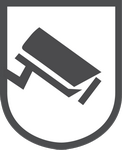Medical billers serve as intermediaries between healthcare providers, patients and insurance companies for payment of medical services. They are parts of the healthcare industry revenue cycle management (RCM) team. Becoming a medical biller doesn’t require a 4-year college degree. Within a year, you can finish a medical billing course at an accredited school, and write examinations by the National Healthcare Association (NHA) or American Health Information Medical Association (AHIMA). The US Bureau of Labor Statistics revealed that the median annual wage of a billing clerk is $36, 150.
Combining healthcare services with medical billing services is tedious for health professionals. Therefore, in recent times, many healthcare providers outsource medical billing services to a third party company known as medical billing company. This approach makes it possible for a provider to focus on their main duties – giving quality treatment to patients.
A good example of medical billing services outsourced to a third party company is the chiropractic billing services. Examples of these companies are ‘5 stars Billing Services, Inc.’ and ‘Olympic Chiropractic Billing’.
To perform optimally at work as a medical biller, you must be able to pay attention to details, be familiar with medical codes, have good computer skills and great communication skills. There are possibilities of working remotely, giving room for flexibility in hours of work. However, an error by a medical biller can be deadly for both a healthcare provider and the patient involved. So there is a need to be extra careful while working. What in particular are your duties as a medical biller?
1. Submit Claims to Insurance Companies: You are responsible for giving out claims, which are processed via software, to insurance companies so payment can be made. A claim can be accepted, rejected or denied by insurance companies. Rejected or denied claims need to be reviewed by the biller and then submitted again to the insurance companies. The cycle goes on that way until the claim is accepted.
2. Ensure Payment of Healthcare Services By Insurance Companies, Patients or Other Payers: You send out bills for payment to insurance companies via claims. Under circumstances where the payment for a medical procedure or services isn’t completely paid for by these companies, the patients are billed.
3. Have Updated & Classified Information About Medical Insurance Companies: Claims can be rejected if they fail to fulfil just one of the requirements of its recipient insurance company. So, you need to to get consistently updated on the terms and conditions of each insurance company. It is also important to know the differences between types of insurance plans, Medicare and Medicaid.
You also need to be familiar with the several rules guiding the healthcare business such as the Health Insurance Portability and Accountability Acts (HIPAA) and Affordable Care Acts (ACA).
4. Clerical Duties: You review medical procedure, ensure proper documentation of patients’ information, ensure completeness of payment by insurance companies, and calculate charges.
5. Customer Relations: You make telephone calls to patients and healthcare providers for records and medical procedures verification respectively.
